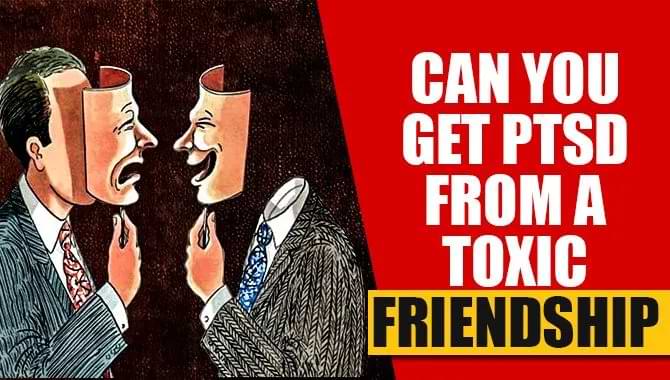Quick Summary: Building strong relationships for men involves prioritizing emotional healing and self-awareness. It means understanding your own needs and past experiences to foster healthier connections with friends, partners, and family. This guide provides actionable steps for men on their journey to better relationships through essential healing.
Best Relationship Building For Men: Essential Healing
Feeling disconnected or struggling to build meaningful relationships? As a man, it’s easy to feel lost when it comes to navigating the often-complex world of connection. You might find yourself wondering why some relationships feel strong while others falter, or perhaps you’re not sure how to even start building those deeper bonds. This isn’t about blame; it’s about understanding. It’s about recognizing that great relationships, for anyone, start with a strong foundation within yourself. We’ll walk through simple, practical steps to help you understand and improve your relationship-building skills, focusing on how your own emotional well-being is the secret ingredient.
Why Emotional Healing is Key for Men’s Relationship Building
For centuries, men have often been taught to be strong, stoic, and to keep their emotions bottled up. While this may have served a purpose in some contexts, it’s a major hurdle when it comes to building genuine, lasting relationships. True connection requires vulnerability, empathy, and the ability to understand and express feelings – both your own and those of others. When men neglect their emotional health, it can manifest in various ways that hinder their ability to connect:
- Difficulty expressing needs and feelings.
- Mistrust or fear of intimacy.
- Tendency to withdraw during conflict.
- Misunderstandings due to poor communication.
- A feeling of loneliness, even when surrounded by people.
Emotional healing isn’t about weakness; it’s about gaining strength. It’s about understanding the patterns and experiences that shape how you interact with the world and the people in it. By investing in your emotional well-being, you create a more stable, authentic self, which is the bedrock of any healthy relationship. Think of it like building a house: you wouldn’t start on shaky ground, would you? Your emotional state is that ground.
Self-Awareness: The First Step to Deeper Connections
Before you can build strong relationships with others, you need to understand yourself. This means taking an honest look at your thoughts, feelings, and behaviors. What makes you tick? What triggers you? What are your core values? When men cultivate self-awareness, they equip themselves with the tools to:
- Recognize their own emotional responses and triggers.
- Understand their patterns in relationships.
- Identify what they truly need and want from connections.
- Communicate their needs more clearly and effectively.
This process isn’t always easy. It might involve some introspection, journaling, or even seeking professional guidance. The goal is not to dwell on the past but to understand its impact on the present. Tools like journaling can be incredibly powerful. Simply dedicating a few minutes each day to write down your thoughts and feelings can reveal a lot about your inner world.
Practical Steps for Cultivating Self-Awareness
Here are some actionable ways men can start building self-awareness:
- Journaling: Set aside 5-10 minutes daily to write. Ask yourself questions like: “How did I feel today and why?” or “What went well, and what could I have done differently?”
- Mindfulness and Meditation: Practices that help you stay present and observe your thoughts without judgment. Apps like Calm or Headspace can be great starting points.
- Feedback from Trusted Sources: Ask close friends or family members (whom you trust to be honest and kind) for constructive feedback on your communication or behavior patterns.
- Identifying Your Values: What principles are most important to you? Knowing your values helps you make decisions and build relationships aligned with what truly matters to you. Websites like the VIA Institute on Character offer free surveys to help identify your strengths and values.
- Recognizing Patterns: Pay attention to repeated situations in your relationships. Do you tend to attract similar types of people? Do recurring conflicts pop up? Understanding these patterns is the first step to changing them.
Understanding Vulnerability and Emotional Expression
Vulnerability is often misunderstood, especially by men. It’s not about being weak or oversharing irrelevant details. Vulnerability, in the context of relationships, is about the courage to be open, authentic, and honest about your feelings and experiences, even when it feels risky. For men, this can be a significant challenge due to societal conditioning.
When you express your emotions appropriately, you create a space for others to do the same. This fosters trust and deeper connection. It allows people to see the real you, not just a facade. Conversely, suppressing emotions can lead to resentment, misunderstandings, and emotional distance. Learning to articulate your feelings, even the difficult ones, is a crucial skill for building strong relationships.
Embracing Vulnerability: A Skill to Develop
Here’s how to begin embracing vulnerability:
- Start Small: Share a feeling about your day with a trusted friend or partner. Instead of “I’m fine,” try “I feel a bit stressed about work today because…”
- Practice Active Listening: When someone else is vulnerable, listen without judgment. This creates a safe space, and you learn by example.
- Acknowledge Your Fears: Understand that vulnerability can be scary. Recognize the fear, but don’t let it control you. The rewards of deeper connection are worth the temporary discomfort.
- Use “I” Statements: Frame your feelings from your perspective. For example, “I feel unheard when…” is more effective than “You never listen to me.”
- Seek Safe Spaces: Engage with people who have shown they are trustworthy and empathetic. Building comfort with less intimate connections first can build confidence. Consider resources like the Gottman Institute, which provides research-backed advice on building healthy relationships, often highlighting the importance of emotional expression and connection.
Building Trust Through Consistent Actions
Trust is the currency of any strong relationship. For men, building trust often means demonstrating reliability, honesty, and integrity. It’s not just about saying you’ll do something; it’s about consistently following through. When trust is broken, it’s incredibly difficult to rebuild. Conversely, when trust is earned and maintained, relationships become more stable and fulfilling.
Consistency in actions speaks louder than words. It shows that you are dependable and that your word has weight. This applies to friendships, romantic partnerships, and family ties. Whether it’s showing up on time, keeping promises, or being honest even when it’s uncomfortable, these actions build a solid foundation of trust.
The Pillars of Trust for Men
Consider these key elements in building trust:
- Reliability: Do you do what you say you will do? Consistently.
- Honesty: Do you tell the truth, even when it’s difficult?
- Integrity: Do your actions align with your values and words?
- Empathy: Do you try to understand and consider the feelings of others?
- Confidentiality: Can people trust you with sensitive information?
Let’s look at how these principles play out in different scenarios:
| Scenario | Trust-Building Action | Impact on Relationship |
|---|---|---|
| Friendship | Consistently being there for a friend during tough times, keeping promises to hang out. | Deepens loyalty and shared history, fostering a sense of security. |
| Romantic Partnership | Being transparent about your day, not hiding important information, being emotionally available. | Creates a sense of safety and deep intimacy, encouraging further openness. |
| Family | Showing up for family events, offering practical support, being truthful in a kind way. | Strengthens bonds and creates a reliable support network. |
| Professional (e.g., mentormentee) | Delivering on commitments, offering honest and well-intentioned advice, respecting boundaries. | Establishes credibility and a positive working relationship. |
Developing Effective Communication Skills
Communication is the bridge that connects people. For men, improving communication often involves learning to express oneself clearly and to listen actively. Many misunderstandings and conflicts arise from poor communication, which can erode even the strongest relationships.
Effective communication isn’t just about talking; it’s about being understood and understanding others. It involves a combination of clear speaking, attentive listening, and non-verbal cues. When men develop these skills, they can navigate disagreements constructively, express appreciation, and foster a sense of being truly heard and valued.
Key Components of Effective Communication
Focus on these areas to enhance your communication:
- Active Listening: Fully concentrate on what the other person is saying, not just waiting for your turn to speak. Make eye contact, nod, and paraphrase their points to ensure understanding. A great resource for learning active listening techniques can be found through communication skills training programs, often offered by universities or professional development organizations.
- Clear and Concise Expression: State your thoughts and feelings directly and simply. Avoid ambiguity or passive-aggressive language.
- Non-Verbal Cues: Be aware of your body language, tone of voice, and facial expressions. They convey a significant part of your message.
- Asking Clarifying Questions: If you’re unsure about something, ask. “Can you explain that further?” or “So, if I understand correctly, you mean…”
- Empathy in Communication: Try to see things from the other person’s perspective. Acknowledging their feelings (“I understand why that would be frustrating”) can de-escalate tension.
- Timing and Setting: Choose appropriate times and private places for important conversations. Avoid bringing up sensitive topics when emotions are already high or when there are distractions.
Navigating Conflict Resolution with Emotional Maturity
Conflict is a natural part of any relationship. What distinguishes healthy relationships from unhealthy ones is not the absence of conflict, but how it’s handled. For men, learning to approach conflict with emotional maturity – rather than defensiveness or aggression – is transformative for relationship building.
Emotional maturity in conflict means being able to address disagreements respectfully, seek understanding, and work towards resolutions that honor everyone involved. It requires managing your emotions, communicating effectively, and being willing to compromise. When men develop these skills, arguments become opportunities for growth rather than sources of damage.
Strategies for Positive Conflict Resolution
When disagreements arise, try these approaches:
- Take a Pause: If you or the other person is getting too heated, suggest taking a break to cool down before continuing the discussion.
- Focus on the Issue, Not the Person: Avoid personal attacks or character assassinations. Stick to the specific behavior or situation causing the problem.
- Seek to Understand Before Being Understood: Ask open-ended questions to truly grasp the other person’s perspective. Listen to their needs and feelings.
- Find Common Ground: Look for areas where you agree or where your needs overlap. This can form the basis of a solution.
- Be Willing to Compromise: Not every conflict will have a “winner.” Often, the best outcome is a compromise where both parties give a little.
- Apologize Sincerely: When you’ve made a mistake, a genuine apology goes a long way in repairing damage and rebuilding trust.
Resources like those from the National Institute of Health (NIH) often discuss the psychological impact of unresolved conflict and the benefits of constructive resolution strategies. Understanding the science behind relationships can also be empowering.
Building an Authentic Social Network
As men engage in their own emotional healing and relationship-building journey, the next step is to cultivate a supportive social network. This isn’t just about having a lot of friends; it’s about having genuine connections with people who uplift you, understand you, and encourage your growth.
An authentic social network is built on shared values, mutual respect, and shared experiences. It provides a sense of belonging, reduces loneliness, and offers different perspectives. For men who may have struggled with social connection, building this network starts with intentional effort and a willingness to be open.
Steps to Building Your Authentic Network
Here’s how to cultivate meaningful friendships:
- Join Groups Based on Interests: Whether it’s a book club, a hiking group, a coding meetup, or a sports league, shared hobbies provide a natural way to connect with like-minded individuals. Platforms like Meetup.com can be a great starting point for finding such groups.
- Be a Proactive Friend: Don’t wait for others to reach out. Initiate conversations, suggest activities, and follow up. A simple “Hey, I was thinking about [activity], would you be interested?” can go a long way.
- Be Open to New Friendships: Sometimes the best connections come from unexpected places. Be open to getting to know people you might not have considered friends before.
- Invest Time and Energy: Friendships, like any relationship, require nurturing. Make time for the people who matter to you.
- Show Up Authentically: Bring your true self to these interactions. Vulnerability and authenticity are magnetic and attract genuine connections.
- Set Boundaries: While being open is important, it’s also crucial to set healthy boundaries to protect your energy and well-being.
The Role of Self-Care in Relationship Sustainability
It might seem counterintuitive, but taking care of yourself is fundamental to building and sustaining healthy relationships. When you are burnt out, stressed, or depleted, it’s hard to be present, patient, and loving with others. Self-care isn’t selfish; it’s essential fuel for your relational engine.
Prioritizing self-care allows you to manage stress, maintain emotional balance, and have the energy and capacity to invest in your relationships. It means making conscious choices to support your physical, mental, and emotional health. For men, this might mean challenging the notion that constant hustle is the only way to be productive or valuable.
Simple Self-Care Practices for Men
Incorporate these practices into your routine:
- Physical Well-being: Regular exercise, balanced nutrition, and adequate sleep are the cornerstones of physical health, impacting mood and energy levels.
- Mental Relaxation: Schedule time for activities you enjoy and that help you de-stress, such as reading, listening to music, hobbies, or spending time in nature.
- Emotional Check-ins: Regularly assess how you’re feeling. Journaling, talking to a therapist, or simply taking a few moments for deep breathing can help.
- Setting Boundaries: Learn to say no to commitments that overextend you. Protect your time and energy.
- Seeking Support: Don’t hesitate to lean on your support network or seek professional help when you need it. Asking for help is a sign of strength.
According to the Centers for Disease Control and Prevention (CDC), maintaining good mental health is crucial for overall well-being and can significantly impact how we interact with others and how we experience life’s challenges.
FAQ: Your Relationship Building Questions Answered
Q1: I’m a man and I find it difficult to open up emotionally. What’s the first step to becoming more vulnerable?
A: Start small and in a safe environment. Try sharing a simple feeling, like being tired or happy about something specific, with someone you trust deeply. Focus on using “I” statements, like “I feel…” rather than making accusations. Gradually increase the depth of sharing as comfort grows.
Q2: How can I tell if I’m building genuine trust with someone, or if they are just being polite?
A: Genuine trust involves consistency. Observe if their actions align with their words over time. Do they show up when they say they will? Are they honest, even when it’s difficult? Do they keep confidences? Forgiveness and open communication during disagreements also signal deeper trust.
Q3: I often feel like I’m not understood by my partner or friends. What communication techniques should I try?
A: Practice active listening and clear expression. When you speak, state your needs or feelings directly. When listening, make eye contact, nod, and try to paraphrase what you heard back to them to confirm understanding (“So, you’re saying that you feel…”). Asking clarifying questions like “Can you tell me more about that?” can also help.
Q4: Conflict always seems to escalate quickly when I’m involved. What’s a better way to handle disagreements?
A: The key is managed emotional response. If you feel overwhelmed, suggest a pause to cool down. When you re-engage, focus on the specific issue, not on attacking the person. Try to understand their perspective before defending yours. Be willing to compromise; not every disagreement needs a winner and loser.
Q5: I’m busy and don’t have a lot






